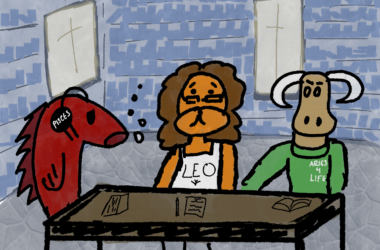Internships make many bold promises. But whether it’s hands-on involvement, exposure to the field, or networking and learning alongside seasoned professionals, internships’ selling points all centre on giving participants an experience comparable to a full-fledged job. And like real jobs, internships can be difficult to come by.
Blame the economy, or the ever-increasing importance companies and graduate programs place on relevant and practical experience. Either way, the internship game has become as competitive as career placement and degree planning, with students requiring similar advising.
Enter the Arts Internship Office, the largest of the many faculty internship offices on campus. When not maintaining an extensive database of available internships for browsing and offering its own subset of internships for upper-year students, the office acts as an advising body for students in each stage of the internship-seeking process: narrowing the search, polishing applications, and training accepted interns. Unfortunately, not all students understand the process of applying for an internship.
“Many students come in to see us just as they’re getting into the process of finding an internship. We help them start from scratch: crafting a learning objective, finding organizations that best fit their needs and that they can contribute to,” says Anne Turner, Arts Internship manager.
The program also works with Career Planning Services, reviewing cover letters and CVs and making improvements when necessary. The AIO also keeps in close contact with other internship offices, departments, and faculties.
“Working with [other faculties’ internship offices] helps us highlight internship opportunities on campus as a whole. Additionally, most of the internships [the AIO] directly administers come from individual departments and professors, who have connections all over the world,” says Turner.
The AIO’s pre-departure workshops largely come in two varieties. Health and safety sessions invite a nurse and a representative from the Department of Foreign Affairs to brief students going overseas. Afterwards students meet with professors and peers in groups according to the countries they will visit.
The other training focus is a two-part series. The Preparedness Workshop equips students to deal with professional and cultural differences they may experience in their new working environment, under the guidance of a guest facilitator. The same facilitator checks up with students to receive feedback after the internship is completed.
Because most Arts internships are unpaid, the Arts Internship Office also provides Arts Internship Awards¬ – grants to alleviate travel and living expenses for qualifying students.
The application deadline for the 2010 Arts Internship Awards is March 22.
The AIO recognizes that their databases are limited and students will invariably find internships on their own. Nonetheless, they assure students that their services are not at odds with individual efforts.
“Students often think we can only help with internships set up by our own office, but we help in many ways – put students in touch with someone else in the country, inform them of the country’s political situation, help them obtain credit and awards,” says Turner. “Even students who don’t have a good idea of where they want to look can get on the right track after coming to see us.”








